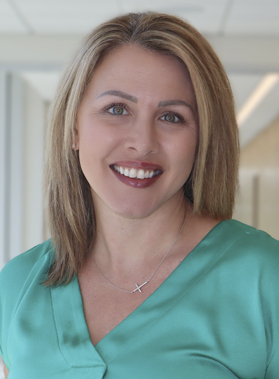Grand View Health is now part of St. Luke’s. For questions about your patient portal, billing, or medical records, we are here to help.
Proper nutrition is an essential part of growth and development for all infants and children. But sometimes, kids may experience difficulties feeding and swallowing for any number of reasons. Pediatric speech therapy for feeding can help take the stress out of mealtimes. At Grand View Health, our expert speech language pathologist teaches children the skills they can use to improve their ability to eat safely.
Pediatric speech therapy for feeding can help children of all ages — from newborns all the way up through age 21. Your child may benefit from feeding therapy if they:
The speech language pathologists at Grand View Health provide care for infants and children throughout Bucks and Montgomery counties, including families in Quakertown, Lansdale and Doylestown. We treat feeding issues related to a variety of conditions, such as:
This occurs when children struggle to eat or drink enough food or liquid. Pediatric feeding disorder can impact a child’s growth, nutrition and development.
Babies born earlier than the 37th week of pregnancy sometimes experience trouble feeding.
Children who experience delayed physical, mental or social development may experience poor appetite and feeding difficulties, or they may show very little interest in food.
People with Down syndrome may experience difficulties sucking, swallowing and chewing due to low muscle tone or a protruding tongue.
This condition occurs when the small fold of tissue under the tongue (called the frenulum) is too short or tight, restricting the tongue’s movement. Tongue tie can lead to difficulty breastfeeding or challenges eating solid foods.
When children have difficulty controlling muscles in the lips, tongue, jaw and palate, they may experience feeding difficulties.
Infants and children with cerebral palsy, autism spectrum disorders and other neurological conditions may experience developmental delays and have trouble swallowing and feeding.
Feeding can be affected by traumatic conditions such as traumatic brain injury, burns, chest or abdominal injuries, or injuries to the face and jaw (called maxillofacial trauma).
Laryngomalacia, also known as “noisy breathing”, affects the voice box (larynx) of some infants, while tracheomalacia, a weakening of cartilage in the trachea, can cause lower airway issues.
Yes. Ask your pediatrician or family medicine physician for a referral to Pediatric Speech Therapy for Feeding at Grand View Health.
Speech therapists, also called speech language pathologists, are specially trained to help children with feeding disorders. Through speech therapy, speech language pathologists help infants and children strengthen the muscles involved in eating. They also provide guidance on positioning, feeding techniques and mealtime routines. Additionally, speech therapists help children become more comfortable with different food textures and tastes, and they teach kids how to swallow safely and prevent choking.

Rebecca Letting, MA, CCP-SLP, IBCLC
Speech Therapist
Grand View Health Speech Therapy
Rebecca is a speech language pathologist and an international board-certified lactation consultant. She has experience caring for medically complex infants and children – including premature infants – and is passionate about helping parents feed their babies.

Grand View Hospital (West Building)
Physical Medicine and Rehabilitation
First floor (enter through the front door of The Pavilion)
700 Lawn Avenue
Sellersville, PA 18960
215-453-3220
Get Directions